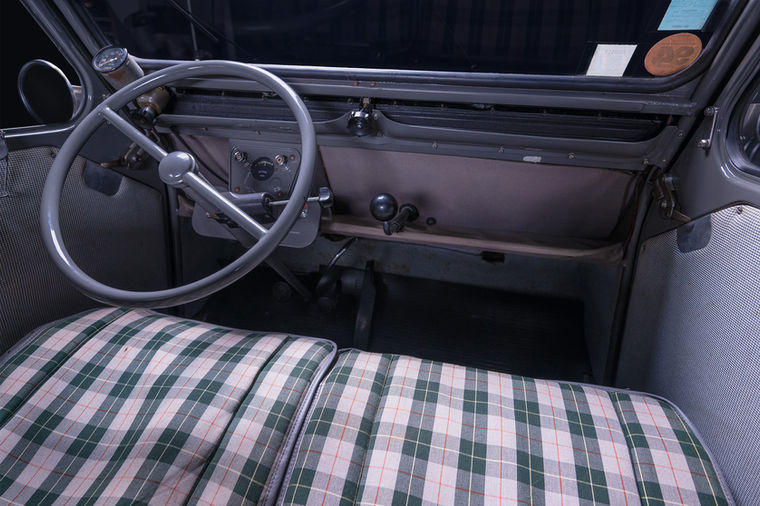Description
The 1954 Citroën 2CV holds a special place in the hearts of the French people and it evokes a wave of nostalgia as it was often their first automobile. Drawn by Pierre Boulanger, the 2CV was the rescue plan for a bankrupt Citroën in the 1930s. Making a car that any working French person could afford to purchase and maintain would open a huge market. The plan was simple but required great engineering and foresight.
The TPV, launched in September 1939, embodied simplicity with its four wheels under an umbrella design. The initial 375-cc, eight-horsepower engine made the first models sluggish, but the car's lightweight four-door sedan (weighing only 1300 pounds), compensated for its modest power. Despite the omission of CV joints, which caused a jerky steering experience, the 2CV became known for its economy, indestructibility, and ease of maintenance.
The 2CV's iconic design and functionality, rooted in Boulanger's vision, made it a beloved vehicle for generations. Its economical nature, nimble handling, and ahead of its time regenerative braking contributed to its enduring popularity. The 1954 Citroën 2CV stands as a symbol of French automotive ingenuity, capturing the hearts of enthusiasts and defining an era. With over 5 million units produced worldwide from 1948 to 1990, it left an indelible mark on automotive history.
Contact
Olivier Cerf
Vehicle Details
Year
Make
1954
Citroën
Model
2CV
Engine
2 cylinder, horizontally opposed, air cooled
Number Produced
1,835,170
Price
Exterior Color
Interior Color
Grey
Green/White
Country
France








